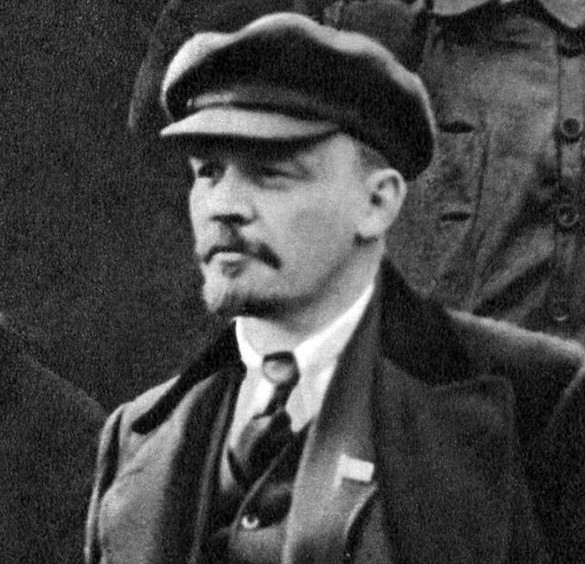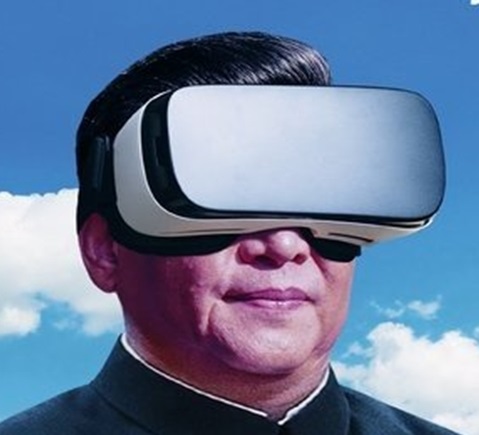I’m reading through some of our literature (namely Socialism, Utopian and Scientific) and I really get the sense that many of our intellectual forebears think that everything important in philosophy happened in Europe. Granted, European philosophy is necessarily of primary relevance in a critique of early capitalism, but when Engels traces the history of these strains of thought (materialism, dialectics, etc.), they all go back to ancient Greece. I find this suspicious.
Is this a consequence of lopsided education, either of the target audience or of Engels himself? Have non-western Marxists grafted dialectical materialism onto Asian or African philosophy? Are there analogous movements within these cultures that dovetail nicely with Dialectical Materialism? Or do they more or less take Engels at his word here? Maybe I’m misinterpreting something.
No, because Marxism is not only Marx and Engels. Marxism was first developed by them, but was also developed by many other non-European peoples, and just to name a few, Maurice Bishop, Thomas Sankara, Amilcar Cabral, Che Guevara, Raul and Fidel Castro, Mao Zedong, Ho Chi Minh, Luis Carlos Prestes, Clovis Moura, Ruy Mauro Marini, Vânia Bambirra, Theotônio do Santos, Carlos Marighella, all of them non-European Marxists.
So no, Marxism is not euro-centric.
A good thread about the centrality of the third world to ML thought.
It’s also really funny that anticommunists use the term “eurocentric”, since that term was invented by an Egyptian Marxist economist, Samir Amin.
Thanks for mentioning Samir Amin, I’m surprised there’s based people from my country. Also had no idea he coined that.
deleted by creator
Wow I had no idea tbh, I’ll have to look more into that. I do know about the imperialist repression but not about any socalists from here, we didn’t get taught that stuff in history class (unsurprising). I wouldn’t call it overt anti-communism like in the West but more lying by omission.
Would you not consider Fidel and Raul European colonists of Cuba? Sure they were revolutionaries, but they came from landed wealthy Spanish merchants.
They did not took resources from the country and its people, and they did not bring slaves to work the lands. So no, no way they would be considered colonialists.
He was the son of a Spaniard. His family wealth was from owning a sugarcane farm. He was raised by a Spaniard who fed him with the money from owning a sugarcane farm. How is that not settler colonialism? Like, by definition.
Again, I agree that he was a revolutionary, but he was a class traitor. He was not indigenous, he was not a descendant of a slave. He was European by heritage, in the same way any US president in the same time frame was also a European settler colonialist living in America.
He was not aware, and his actions defined his character along with the class consciousness and the revolution he achieved. It is like saying that since you are son of a slave-owner, you are one too.
This is a very idealist take. I didn’t say that Castro’s “character” was settler colonialist. I said he was a settler colonialist, materially. I don’t see how you can refute this by saying he was unaware.
Yes, the child of a slave owner, while that owner owns slaves, is, in fact, a slave owner, because the property is shared within the family. Just like the child lives in a house built upon a mass grave indigenous people. Just like the child grows strong and healthy eating foods produced by slave labor. Materially, the child is part of the slave owning class.
Castro was a European. He spoke a European language. He lived in European-designed and built homes. He wore European-designed clothes. He ate European-developed foods. He was culturally European. He was a class traitor, but it does not change the material fact that a violent band of pirates and murderers set sail from Spain with Spanish wealth that was stolen from Africa, landed on an island inhabited by the indigenous Taino people, slaughtered every single one they could find, and built a European colony on that island, and imported people that were kidnapped from Africa and benefit from their slave labor for generations, imposed their language, religion, and customs on them, and then a couple hundred years later, had a bourgeois revolution to free themselves from colonial rule so that they could maximize their profits as independent owners of the means of production in a rapidly industrializing world.
That’s the inheritance of ALL white Cubans. That is the material reality that gave rise to the Castro family in Cuba. It’s the material history that led to the birth of a Spanish speaking white cis-het male baby named Fidel and his brother Raul, and it’s the material history that led to them being educated.
And then Fidel (and Raul and many others) became a class traitor, aligned his interests with the massed, and worked hard to oust all of the bourgeois and the petite bourgeois from the island, eliminate the conditions for the reemergence of the bourgeoisie, and improve the lives of the masses, who were primarily descendants of slaves in one way or another.
The question was about whether Marxism was Eurocentric. It is very difficult to separate European colonies from Europe. Is Canada Eurocentric? I would say so. Is Australia Eurocentric, I would say so.
So, when we consider Marxist movements, how are we to judge their Eurocentricity? European lineage, European wealth, European language, European religion, European cuisine, European style, European education, European families, European institutions… All of these dominate American, Canadian, Australian, and Cuban society. If an indigenous movement developed Marxism, that would be a non-Eurocentric form of Marxism, even if they had to use the language of the colonists to be heard, even if they had to incorporate cultural elements of the colonists to be taken seriously. But I am not convinced that a white Spaniard who lived on a sugar plantation and had patriarchal rights back in Spain and lived as a colonizer lives who then became a class traitor is not a Euro-centric Marxist simply because he was geographically located on the island of Cuba instead of the island of Ibiza or Mallorca.
I see know and understand better the argument. Then in the material sense, indeed, Castro was part of the ruling class, which then became a class traitor and alligned himself with the workers and peasants to build the revolution.
No. Of course, in the time of Marx and Lenin it definitely was, because Europe and USA had the most developed capitalist system. But by design it is not. Even reading them you will quickly see that it is irrelevant other than them naturally having the most knowledge and information about their region - they did expect the comrades from other part of the world to pick up the marxism and fill the holes. And exactly that happened.
So, before someone will bash the Lenin for calling Russia asiatic tyranny - better read more, for example this.
Marxism itself is not Eurocentric. Sure, some of the very very first Marxist writers likely were, as they were people of their own time and space. I would not expect Karl Marx to have a firm grasp on the material conditions in China, Africa, or South America. Same with Engels, Lenin, etc., so their literature will have a lot of references that focus on Europe. It is their personal foundation.
However, Marxism has been built upon and expanded greatly since then, with many thinkers from all over the world making their own contributions. Mao, Castro, Che, and many other non-Europeans took what previous thinkers contributed and applied it to their own material conditions, then wrote about it to add to the common knowledgebase.
At this point, Marxism has more contributions from outside Europe than from within.
Though Marx, Engles and the other founding Marxists built the ideology from the framework of European academia, Lenin’s contributions made Marxism easier to adapt to national dialectical materialism, by reforming Marxism to work in a Russian context. As a result, when a leader formates Marxism to work for their national struggle, they reform it to their philosophy and worldview. ML-MZT is simply Marxism from a Chinese perspective, Juche is Marxism from a Korean one. “Castroism” is Marxism from a Cuban perspective, and so on and so forth.
Which, really has to make you think. If it’s “revisionist” to reform Marxism to work within the framework of your own culture’s way of seeing things, are the so-called “anti-revisionists” just mad that non-Europeans wanted to make Marxism work for them without needing to colonize their culture?
Marx was a bit eurocentric. Comrades will tell me he worked with what was available at the time to him and that’s probably true, but I personally wouldn’t venture a guess. It’s true that he* was (edit:to some extent; he and Engels didn’t write exclusively about Europe).
Marxism though is universal, and this can plainly be seen in the many ML revolutions that took place in continents that were distinctly not Europe.
Yes, because during the 19th century, Europe comprising a quarter of the world’s population.
Africa was like what Oceania is right now, lacking in population, even as a settler-colony.
The only other nations of note in size of population were India and China.
There was hardly any knowledge of these nations and those who did lived there.
Knowledge of other nations was scarce and was there, was often faulty and built upon outdated books from 2000 years ago.
People could still get away with easy swindles and mistakes would not get corrected for centuries.But Marx was the first one to thoroughly give critique to the direction Europe was going into with the first wave of automation replacing a string of previously stable jobs and he’s now to goto person if you want to learn about communism.
And thus his work is what one can further build upon and/or critique.deleted by creator
Nah. Trotskyism though? Defintiely.
Not sure who downvoted this, but eurocentrism, specifically the idea that revolution must be successful first in Europe, and it can’t succeed elsewhere first without europe, is a pillar of Trotskyism.
I mean, first I should say, does the method used to describe scientific principles actually matter? Does Dialectics create Marxism, or was Dialectics just the common base in which Marx was able to describe to his peers his observations of reality? I don’t think there’s a correct language to describe concepts which are theories of reality, all cultures will express universal concepts in their own terms.
I also think we may be putting too much attention onto philosophy here. Marx’s theories are useless in whatever form they take, as long as they cannot reliably make predictions. This is why Marxism must be scientific, we must test our theories against reality, and alter our theories when reality shows them to be wrong.
Kwame Ture makes a very good point about the supposed whiteness of Marxism
deleted by creator
This is super interesting and exactly what I was looking for, no offense to the other valid points made. I’ve also recently learned about Lao Tzu, who was a contemporary of Heraclitus, the “Father of Dialectics.”
awesome writeup, great read
These guys don’t seem to mind either way.
Seriously though, isn’t the whole point of ‘Socialism With Chinese Characteristics’ that they implement Marx’s ideas in light of the unique socio-economic situation that China is in? And part of the ‘socio-economic situation’ is that China developed with a completely different philosophical heritage which is reflected in the culture.
Going at it the other way: dialectical materialism was developed from Western philosophical thought, but the whole point of it is as a method of finding the material reality of a situation in a way where that historical context is never part of the lens, but potentially part of the elements under scrutiny.
i am not a historian, but i can try to open the conversation with something.
this reminds me of the zapatistas struggle, some of whom were particularly excited with ideas of marxism and socialism, but the reality was that indigenous populations had no real need for these type of structures or ideas. marcos of the ezln has a video out somewhere where he talks about his experience with that in organizing a militant struggle giving birth to what people called neozapatismo, a sort of democratic confederalism like rojava. still leftist/socialist, but seems to be a liberal favorite of sorts in strange contorted ways. ap/bbc/vice news all have a lot of zapatista coverage. the ned organizations network, and their faux anarchist outlets, all really love zapatista coverage too.
with that being said, some of marxism was born out of a study of indigenous populations and trying to form that understanding of communal social structure into a populist economic/state structure. so it seems like it fits really well around the world, because it’s a general theory with many ways of it being applied. considering the western conservative nationalists, mostly liberals, still have to demonize socialism weekly over a century later is very telling of just how popular and powerful the framework is. so even tho marx and engels were eurcentric, most of their studies were of european revolutionary history, so it’s expected, but the theory of marxism is generalized and abstracted away from that
so gives rise to the meaning of the phrase /communism will win/, and to tie that back to dialectical materialism, it means that capitalism was a new idea which had a definitive start, and will have a definitive end. but communism is eternal, as all it does is identify communal social structures as they have already existed for thousands of years. from some of the terminology of thesis/antithesis ideas, communism is constantly reborn, coming again, to be applied to our material conditions, it’s never losing or dying, only being subjugated to exploitation
lotta good comments here already so i don’t want to just repeat what’s already been said. but, i do want to say that marxism in application is dialectical materialism, and that because it frames the world in a way that it is, that anyone from anywhere at any time can use this framework. early marxists were all european so it’s no surprise that they looked at philosophy going back to the early dialectics in ancient greece, but the ancient chinese concept of yin and yang is essentially also an idealistic and early iteration of dialectics as well, just through a different framework. from the chinese marxists i’ve talked to, this is how yin/yang is treated, as a feudal concept of dialectics.
i’m a dirty westerner so i don’t have a cultural background or history to pull from, but as marxism is applied throughout the world in different cultures throughout the periphery, all with their own histories and specific material conditions, i’m sure they will all have a different historical and present way to fram diamat and its application.
I know that The Red Nation had has a lot of success applying Marxist teachings to the struggle of indigenous peoples in North America.
give me a source for more reading pleease
They have tons of resources on their website! Highly recommend their podcasts too.
deleted by creator











